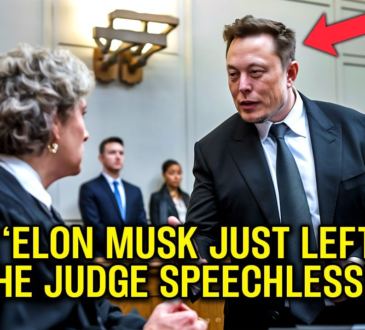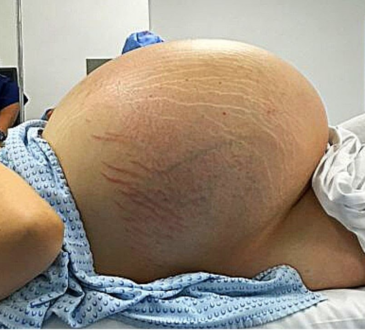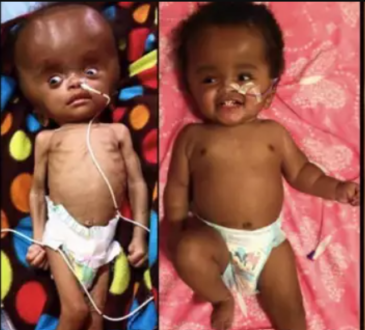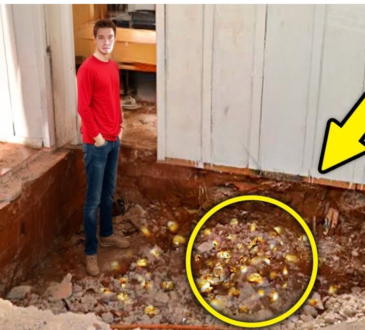An Black Doctor Was Humiliated By the Police in a Restaurant, But They Found Out who His Brother Was
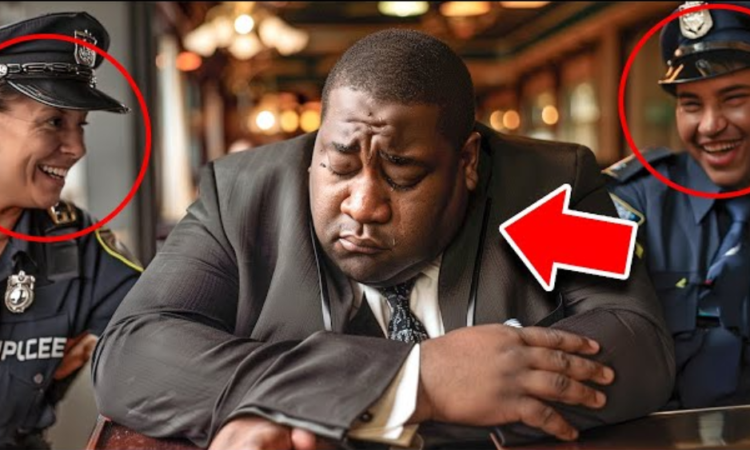
And black doctor was humiliated by the police in a restaurant. But when they found out who his brother was in the heart of Atlanta, Dr. Marcus Wright, a distinguished black doctor, faced a humiliating encounter that would ignite a firestorm of justice. Celebrating a medical breakthrough at the upscale restaurant Laelie, Marcus was confronted by two police officers who questioned his presence there. Unbeknownst to them, Marcus was the brother of Thomas Wright, a renowned civil rights lawyer. What transpired next would lead to a citywide reckoning.
Laelie, known for its luxurious ambiance and high-profile clientele, was bustling with energy. Lawyers, doctors, and business moguls often gathered here to enjoy fine dining and discuss significant matters. That evening, Dr. Marcus Wright, a prominent 32-year-old physician, was there to celebrate a groundbreaking achievement in his medical career with his colleagues. He reveled in the triumph, his confident demeanor and bright smile lighting up the room.
“Marcus, that was an incredible presentation today. You truly outdid yourself,” said Dr. Emily Harris, a close colleague, raising her glass in a toast.
“Thank you, Emily. It’s been a long journey, but we did it together,” Marcus replied, clinking his glass with hers. The mood was jubilant, filled with laughter and animated conversations about their hard-earned success.
Suddenly, the lively atmosphere took a sharp turn as two police officers entered the restaurant. Their imposing presence and stern expressions immediately drew attention. As they approached Marcus’s table, the celebration came to a halt.
“Excuse me, sir. We need to see your identification,” one officer demanded brusquely, addressing Marcus directly.
“What’s the issue, officer?” Marcus asked, trying to stay composed despite the sudden scrutiny.
“We’re just doing our job, sir. Please present your ID,” the officer insisted, his tone authoritative and unyielding.
Marcus felt a chill run down his spine. He knew he hadn’t done anything wrong, but the officer’s demeanor made him feel small and vulnerable. He handed over his ID, which the officer examined with a disdainful look.
“Dr. Marcus Wright, huh?” the officer said, returning the ID with a sarcastic smirk. “Do you think your title gives you the right to be here?”
Marcus’s colleagues began to protest, but the officers were relentless, making racist comments and insinuating that a black man like Marcus didn’t belong in such a prestigious place. The restaurant manager attempted to intervene, but the officers dismissed him, further escalating Marcus’s humiliation.
“This is absurd! He is a respected customer,” the manager exclaimed, trying to defuse the situation.
“Stay out of this,” one officer snapped, glaring at the manager. “We’re handling this.”
After a lengthy and uncomfortable interrogation, the officers finally released Marcus with a forced and insincere apology. Marcus maintained his composure, not wanting to show his pain. He returned home, his mind racing with the injustice he had just experienced.
At home, Marcus found his brother Thomas Wright reading in his study. Thomas, a distinguished civil rights lawyer, immediately sensed something was wrong.
“Marcus, what happened?” Thomas asked, concern etched on his face.
“I was humiliated tonight,” Marcus said, his voice trembling. “Two police officers approached me at the restaurant, made racist comments, and treated me like a criminal.”
Anger flashed in Thomas’s eyes. He embraced his brother, trying to offer comfort. “This is unacceptable. I’ll take immediate action. They can’t treat you like this or anyone else.”
The next day, Thomas used his influence to initiate an investigation into the officers involved. Determined to uncover the truth, he began reviewing cases linked to the officers, looking for any signs of misconduct. Meanwhile, Marcus and his colleague Dr. Emily Harris decided to conduct their own investigation. They analyzed documents and records, uncovering a pattern of evidence tampering and abusive behavior.
“Look at this, Marcus,” Emily said, pointing to an old file. “This case shows altered witness statements. I’m sure those officers were involved.”
Marcus’s indignation grew with each discovery. “This is more serious than we imagined. We need to make this public.”
With the help of investigative journalists, Marcus and Emily began to publicize their findings. The city was in an uproar, and the media began investigating the officers’ histories, uncovering a pattern of abuse and corruption. The officers, feeling the pressure, tried to intimidate Marcus and Emily. They followed them, made veiled threats, but Marcus refused to back down.
“The truth needs to come out, Emily. We can’t let this corruption continue. We need justice, not just for me, but for everyone who’s been a victim.”
Community support began to swell. Civil rights groups joined Marcus, organizing protests and pushing for a broader investigation. The city was divided between those who supported the police and those who demanded urgent reform.
“We’re with you, Marcus,” chanted the protesters outside the courthouse. “Justice now!”
Thomas, for his part, faced his own dilemma. Reviewing old cases, he found more and more evidence that he had unknowingly condemned people based on fabricated evidence. The responsibility weighed heavily on him, but he knew he had to do the right thing.
“We need to review all these cases,” Marcus said, determined. “We can’t let these injustices continue.”
“You’re right, Marcus,” Thomas replied with a resolute look. “Let’s expose the truth, no matter the cost.”
The tension reached its peak when a public hearing was scheduled to discuss the officers’ behavior and Marcus’s findings. The courtroom was packed, the entire city watching intently. Marcus, standing before the court, gave an emotional testimony. He spoke about the incident at the restaurant, his investigations, and the evidence he had uncovered. Each word was laden with emotion, highlighting the impact of racism and corruption on the judicial system.
“Here are the proofs,” Marcus said, presenting documents and records. “These officers tampered with evidence to ensure quick convictions. They betrayed public trust and used their power to oppress instead of protect.”
Under pressure, one of the involved officers finally confessed. He revealed that they were following orders from higher-ups to ensure convictions, exposing a corruption scheme that went far beyond what anyone had imagined. The city was in shock. Thomas, overwhelmed with emotion, gave a powerful speech about justice and responsibility.
“We must correct these wrongs and ensure our system is fair for everyone. We cannot allow corruption to destroy public trust in our justice system.”
The city, once divided, began to unite around the reforms. Several high-ranking officers were fired and prosecuted, and a large-scale review of old cases was initiated. Marcus and Emily worked tirelessly to help the victims of the scheme achieve justice. Marcus, now a recognized and respected figure, launched a nonprofit organization to provide legal assistance to wronged individuals. With the support of his brother, colleagues, and the community, he continued to fight for a more just and equal system.
The city, transformed by Marcus’s courage and relentless pursuit of truth, looked to the future with hope. His story was not only about justice but also about resilience and the importance of never giving up the fight for a better world.
The news of the incident involving Marcus at the restaurant spread quickly, generating outrage and heated debates. The streets were filled with protests demanding justice and police reform. Despite all the attention, Marcus remained focused on his mission. Alongside Emily, he knew he had a long and difficult journey ahead.
In their small office downtown, Marcus and Emily worked tirelessly, assembling a giant puzzle of corruption within the police department. The place was filled with files, notes, and a whiteboard covered in diagrams and names connected by red lines.
“Marcus, look at this,” Emily said, pulling out an old file. “This case shows altered witness testimony. I’m sure these officers are involved.”
Marcus scanned the document quickly. “You’re right, Emily. This is a pattern we’ve seen repeatedly. Altered testimonies, planted evidence, forced convictions. We need to expose this.”
As they worked, community support continued to grow. Civil rights organizations, lawyers, and even some local politicians began to rally behind Marcus’s cause. The city’s atmosphere was tense but filled with hope.
That afternoon, Marcus and Emily visited one of the victims they believed had been unjustly convicted. Thomas Johnson, a 50-year-old man serving a 20-year sentence for armed robbery, had always maintained his innocence.
“Thomas, we’re here to help,” Marcus explained. “We found evidence suggesting you were wrongfully convicted. We want to fight for your freedom.”
Thomas, silent for a moment, looked at them with hope mixed with pain. “I’ve always known I was a scapegoat. Those officers fabricated the evidence. I’m innocent.”
Marcus and Emily spent hours with Thomas, collecting testimonies and reviewing documents. They left more determined than ever to bring justice to Thomas and others who had been victims of the corrupt officers.
The next day, a large protest was organized in front of the police station. Marcus was invited to speak. With the microphone in hand, he addressed the crowd.
“Today we demand justice,” Marcus began, his voice firm and filled with emotion. “We can no longer tolerate racism, corruption, and abuse of power. I am a doctor, but above all, I am a citizen who believes in justice and equality. We need urgent reform in our police and judicial system. We need to ensure that everyone, regardless of skin color or social status, gets a fair trial.”
The crowd erupted in applause and shouts of support. Marcus continued, “We have found evidence that officers are planting evidence and manipulating witnesses. This is not just an attack on innocent individuals but a betrayal of public trust. We need a full and transparent investigation.”
As Marcus spoke, he could see the hope on people’s faces. Inside the police station, the officers watched the protest with grim faces, knowing the pressure on them was increasing.
“This is ridiculous,” muttered one officer, his face red
with anger. “She’s making us look like monsters.”
“We need to do something to discredit her,” replied his colleague. “If this continues, we could all lose our jobs or worse.”
That night, Marcus and Emily continued their investigation in their office, surrounded by piles of documents.
“We have to be careful,” Marcus said. “These officers are dangerous and will do anything to stop us.”
Emily nodded. “I know, but we’re doing the right thing. We need to keep going.”
Meanwhile, Thomas was grappling with his own turmoil. Reviewing old cases, he encountered more evidence of wrongful convictions based on fabricated evidence. The guilt weighed heavily on him, but so did the determination to correct past mistakes.
“Dad, how are you?” Marcus asked, entering his home office. “I know this is hard for you.”
Thomas looked at his brother, his eyes showing pain and concern. “I’m fine, Marcus. I just need to ensure that justice is served. I can’t change the past, but I can fight to make sure this doesn’t happen again.”
Marcus hugged his brother, feeling the strength and love that had always united them. “We’ll get through this together. We can change this.”
The following days were intense. Marcus and Emily continued gathering evidence while the city rallied in support of their cause. A public hearing was scheduled, and the pressure on the police department grew.
At the hearing, Marcus presented his findings with eloquence and passion that impressed everyone. He detailed how the officers planted evidence and manipulated testimonies, supporting his claims with documents and witness statements. The courtroom was silent as he spoke, each word charged with truth and justice.
“These officers betrayed our trust,” Marcus said, looking directly at the accused. “They used their power to oppress instead of protect. We cannot allow this to continue.”
One of the officers, under the pressure of the evidence and public scrutiny, finally confessed.
“I confess,” he said, his voice trembling. “I was forced to plant evidence and alter testimonies. We received orders from above. There was constant pressure to get quick convictions, regardless of whether the accused were actually guilty or not.”
The impact of the confession was immediate. The room erupted in murmurs and shouts of indignation. Judge Thomas Wright, maintaining his composure, called for silence and continued to listen to the testimonies attentively. Another officer, seeing there was no escape, also decided to speak.
“Yes, it’s true. We were encouraged to manipulate evidence and secure convictions, all to improve statistics and receive rewards.”
Marcus felt a mix of relief and sadness. Relief that the truth was finally coming out, but sadness at seeing how far the corruption had spread.
“These acts not only betrayed public trust but also destroyed lives,” Marcus said, his voice laden with emotion. “It’s imperative that not only the guilty be punished, but that deep reforms be implemented to prevent something like this from happening again.”
Thomas, with a serious and determined look, thanked Marcus and the other testimonies. “This court is committed to ensuring that justice is served and that the necessary reforms are applied. We cannot allow such abuses to continue to stain our judicial system.”
The hearing was adjourned for deliberations. Outside, the city was buzzing with discussions and protests. Marcus and Emily left the courthouse, surrounded by supporters and journalists.
“Marcus, how do you feel now that the truth is coming out?” a reporter asked, pushing a microphone toward him.
“I feel that we’ve taken an important step, but the fight isn’t over. We need to ensure that the reforms are implemented and that all victims of this scheme receive justice,” Marcus replied firmly.
Inside the police department, the atmosphere was one of tension and fear. Many officers knew their careers were at risk, and the senior ranks were worried about the repercussions.
“We need to act fast,” said the police chief, meeting with his advisers. “Let’s cooperate with the investigation and try to salvage what we can of our reputation.”
In the following days, the city witnessed a series of dismissals and arrests within the police department. Senior officers were indicted, and a large-scale review of old cases was initiated. Marcus and Emily dedicated themselves to helping victims get new hearings and overturn unjust convictions. Thomas Johnson was one of the first to benefit. With Marcus’s help, he got a new hearing and was exonerated of all charges. The smile on his face as he left the courthouse, finally free, was proof of the positive impact of Marcus’s fight.
“Thank you, Marcus. You saved my life,” Thomas said, tears in his eyes.
“It wasn’t just me, Thomas. It was a collective effort, and we’ll keep fighting so no one else suffers what you did,” Marcus replied, moved.
As the city underwent these changes, Marcus continued to meet with his team to plan the next steps. His nonprofit organization was growing, and he was receiving increasing support from various sectors of society.
In one of these meetings, Emily brought a proposal. “Marcus, I think we should expand our activities. Besides offering legal assistance, we could create education programs to raise awareness about rights and how to defend against abuses.”
Marcus smiled, seeing the enthusiasm and passion in Emily. “It’s an excellent idea, Emily. We need to educate and empower our community. Let’s do it.”
The following months were marked by intense work but also significant achievements. Marcus and his team managed to overturn several unjust convictions and helped many victims rebuild their lives. The impact of their work began to be recognized nationally, and other cities started to implement reform inspired by Marcus’s fight.
One day, Marcus received an unexpected call. It was from a high-ranking federal government representative inviting him to a meeting in Washington, D.C., to discuss national police reform policies.
“It’s an incredible opportunity,” Marcus said to Emily, excited. “Our work is making a difference, and now we can help transform the entire country.”
Emily felt a mix of pride and responsibility. “Let’s go to Washington then. There’s still a lot to be done, but we’re on the right track.”
Upon arriving in Washington, Marcus was received with respect and admiration. During the meeting, he shared his experiences and presented policy proposals based on the reforms implemented in his city. His eloquence and knowledge impressed the government representatives, who committed to seriously considering his suggestions.
Back in Atlanta, Marcus continued his tireless work. With each new victory, he felt he was getting closer to achieving his goal of a fair and equal system. His foundation grew, helping more people and promoting significant changes.
One night, while reviewing documents in his office, Marcus received a surprise visit. It was Thomas, with a proud smile on his face.
“Marcus, you did it,” Thomas said, tears in his eyes. “You made a real difference. I’m so proud of you.”
Marcus hugged his brother, feeling the weight and joy of his journey. “There’s still a lot to do, but together we’ll keep fighting.”
Thomas nodded, knowing his brother was an unstoppable force. “We will, for a better future for everyone.”
And so, Marcus continued his fight, inspiring others to join him and never give up the struggle for justice and equality. His city, transformed by his actions, looked to the future with hope and determination, ready to face any challenge in the name of justice.
The following months brought profound changes to Atlanta. The reforms implemented in the police department began to show tangible results, with a decrease in cases of abuse of power and greater transparency in operations. Marcus’s foundation continued to fight for justice and human rights, helping those who had been victims of a corrupt system.
Marcus was in his office reviewing new cases when Emily came in with good news.
“Marcus, we just received a significant donation from a group of local business people. They want to support our cause and help expand our programs.”
Marcus smiled, feeling a wave of gratitude. “That’s wonderful, Emily. With these resources, we can help even more people and maybe even open branches in other cities.”
The foundation grew not only in resources but also in influence. Marcus was frequently invited to speak at conferences and universities about the importance of justice and equality. His story and work inspired many to get involved in the fight for a fair system.
One morning, Marcus received an unexpected letter. It was from a young lawyer in a neighboring city who reported similar corruption problems in his police department. He asked for help and guidance on how to start an investigation and fight for reforms.
“Emily, we need to help this young man,” Marcus said, showing her the letter. “He’s facing a very similar situation to ours and needs guidance.”
“Of course, Marcus. Let’s invite him to spend some time with us so he can learn from our experiences and take the lessons back to his city.”
The young lawyer, named Raphael, arrived a few days later. Marcus and Emily welcomed him and began sharing their strategies and investigation methods. Raphael was determined to make a difference in his own city, inspired by Marcus’s work.
Meanwhile, Atlanta continued to transform. The community, once divided, now worked together to maintain the reforms and ensure justice prevailed. New education and awareness programs were implemented in schools and local institutions, promoting values of equality and human rights.
At a community event, Marcus was invited to speak. As he stepped up to the stage, he looked out at the crowd and felt a wave of pride and gratitude.
“We’re here today to celebrate the progress we’ve made together,” he began, “but also to remember that the fight for justice is continuous. We need to stay vigilant and united.”
The crowd applauded, and Marcus continued, “Every victory we achieve is an important step, but there’s still much to be done. We must continue to fight for those who still don’t have a voice, for those who have been wronged, and for a future where everyone is treated with dignity and respect.”
The following days were filled with continuous work. Marcus and his team were involved in new cases, helping victims of injustice find their way to redemption. One of the most touching cases involved a teenager named Miguel, who had been falsely accused of
theft. Marcus reviewed Miguel’s case and found numerous inconsistencies. He and Emily worked together to gather new evidence and testimonies.
During the hearing, Marcus presented the evidence with the same passion and determination that always characterized him. “Your honor, it’s clear that Miguel was unjustly incriminated,” he said to the judge. “The evidence against him was fabricated, and he deserves a new chance.”
The judge, impressed with the clarity and solidity of the evidence, annulled the charges against Miguel. The emotion on the teenager’s and his family’s faces was invaluable. Once again, Marcus felt the satisfaction of making a difference in someone’s life.
With each victory, Marcus became more aware of the importance of his work. He knew the fight for justice was endless, but each step forward brought hope and real change.
One quiet evening, Marcus was sitting in his office, reflecting on everything that had happened. Thomas entered and sat beside him.
“Marcus, I’m so proud of you,” Thomas said, holding his brother’s hand. “You faced enormous challenges and never gave up. Your courage and determination are inspiring.”
Marcus smiled, feeling grateful for his brother’s unwavering support. “I couldn’t have done any of this without you, Thomas. Your example and lessons have always guided me.”
Thomas nodded, his eyes filled with pride. “You have a bright future, Marcus. Keep fighting. Keep making a difference.”
Marcus knew his work was just beginning. With the support of his family, friends, and community, he was ready to face any challenge that came his way. The foundation continued to grow, helping more people and promoting significant changes.
In the following months, Marcus and his team managed to expand their operations to other cities, taking the fight for justice and equality beyond their borders. Each new city that joined the movement was another step towards a fairer and more equal system.
Marcus became a national figure, known for his courage and dedication. His story was a testament to the power of determination and the importance of fighting for what is right. He knew the road was long, but each victory, each person helped, was proof that they were on the right path.
And so, with the support of his community and the determination to never give up, Marcus continued his fight, inspiring others to join him. Atlanta, transformed by his actions, looked to the future with hope and determination, ready to face any challenge in the name of justice and equality.

